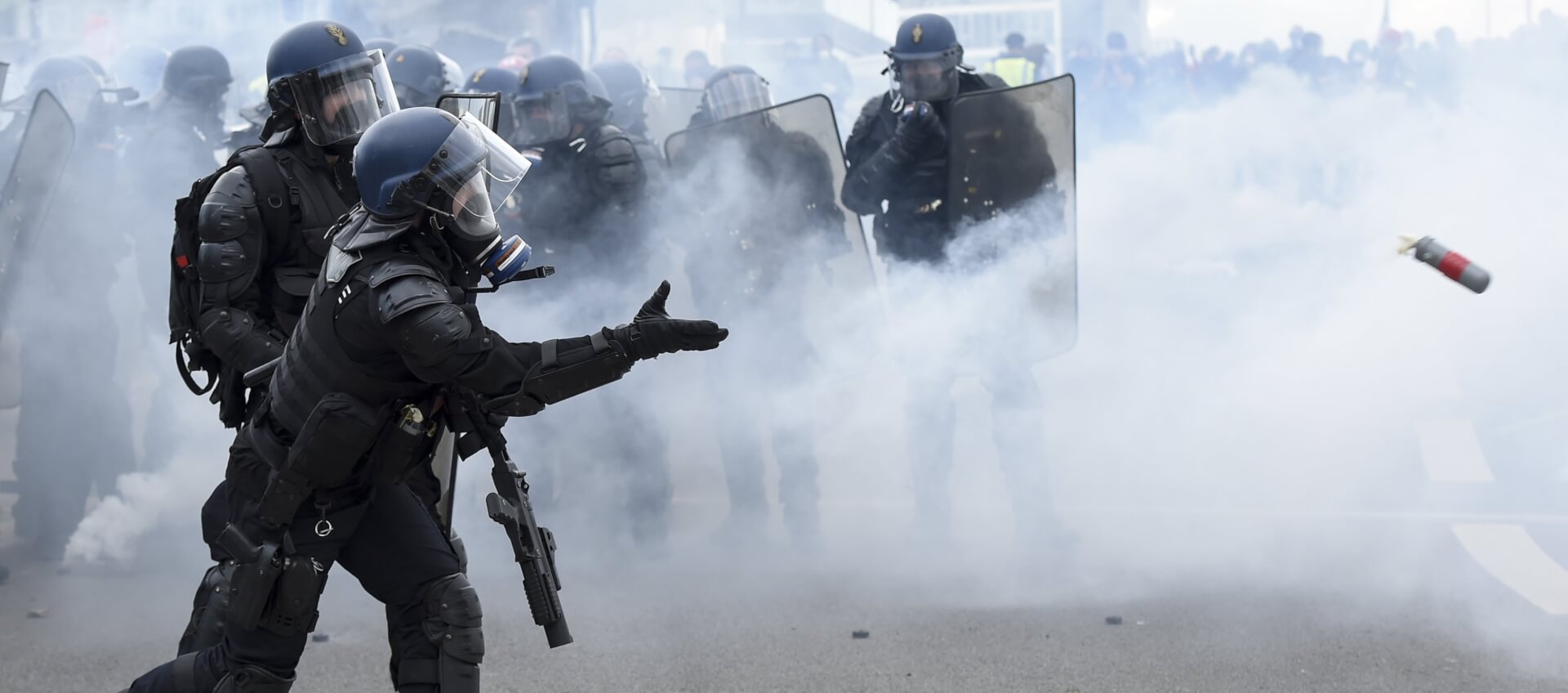On Tuesday, the Global Security Bill was passed by the French Parliament, despite significant opposition from journalists and activists. According to Article 24 of the proposed legislation, which is the most controversial section of the document, the publication and circulation of photographs of law enforcement officers that have been taken “with the intent to cause them harm, physically or mentally” will be prohibited. An offence under this section can attract a prison sentence up to one year and a fine of EURO 45,000. Moreover, the law permits the French authorities to film ordinary citizens through bodycams and drones. It will now be presented before the Senate in December, following which it will be brought back to the Parliament for a final vote.
After the Bill was presented before the parliament, it sparked several protests and attracted criticism over its impact on human rights activists and journalists looking to hold police officers accountable for abusing their powers. French journalist Claire Hedon, who was recently appointed as France’s Defender of Human Rights, warned against the proposal and highlighted that “in [French] legislative arsenal, there already exists the possibility to punish anyone who uses, in an ill-intentioned way, the videos that they publish.” The President of Amnesty International France, Cecile Coudriou, too, raised alarm about the impact of this law on French nationals and its visible hypocrisy. She said, “On one hand, citizens are asked to accept the possibility of being filmed under the pretext that they have nothing to fear if they have done nothing wrong. And at the same time, the police refuse to be filmed, which is a right in every democracy in the world.”
Moreover, on Saturday, thousands of demonstrators, which included journalists and Yellow Vest and Extinction Rebellion protesters, took to the streets to oppose the law. While the defenders of the bill say that the “intent to cause harm” is a crucial element for prosecution under Article 24 of the Bill, the ambiguity of the phrase can be exploited.
However, Prime Minister Jean Castex reiterated that the law will not “prejudice the legitimate interest of the public to be informed.” One of the two French lawmakers, who is also a member of President Emmanuel Macron’s La Republique en Marche party, said, “Article 24 aims to ban their exposure and their harassment on social networks, by malicious and dangerous individuals. No worries: Journalists will still be able to do their job.” Moreover, supporters of the bills highlighted that several videos and images on social media have led to the harassment of police officers and their family members.
This comes in light of several criticisms of violence and disproportionate use of force by the French police. In July, Cedric Chouviat, a delivery man, died because of a broken larynx after being arrested near the Eiffel Tower. After denying impropriety in conducting the arrest, footage by several bystanders led to the initiation of a criminal investigation. Moreover, just this week, the police also faced criticism after videos on social media showed the police forces using disproportionate force against migrants while attempting to take down their illegal camps. After saying that the videos were “shocking,” the French Interior Minister Gerald Darmanin initiated an investigation into the incident.
French Law Prohibiting Photos of Policemen Passes First Hurdle in Parliament
According to Article 24 of the proposed legislation, the publication of photographs of police officers taken “with the intent to cause them harm, physically or mentally” will be prohibited.
November 26, 2020

SOURCE: GETTY IMAGES
